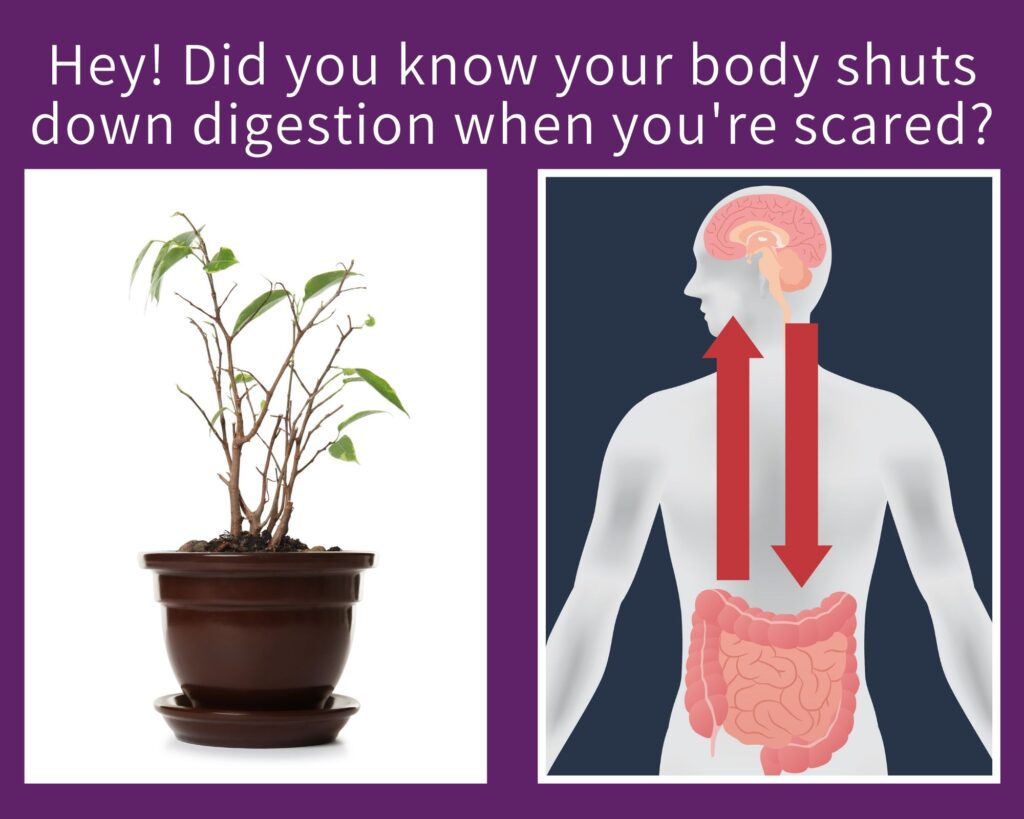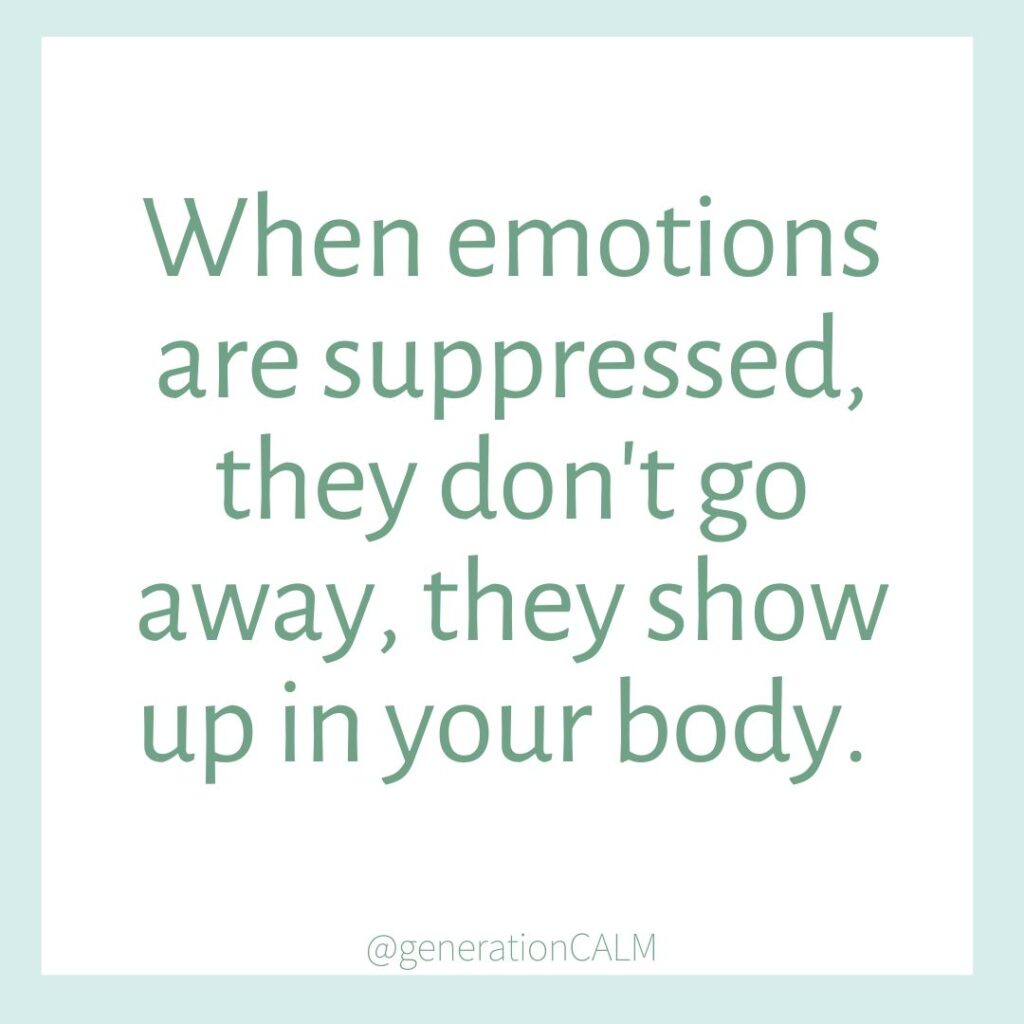
Calm your Anxiety : Stomach Pain Relief with a Meditation?
If you ever get niggles, knots or cramps in your stomach, you may assume it is a physical issue. But have you considered that it might be anxiety that’s causing your digestive problem?
Suffering with Anxiety Pains in your Stomach
Of course, you always want to rule out a physical cause for any unusual, new symptoms or chronic pain by visiting your Doctor first. But there is a link between your gut and your brain. This means if you have difficulty expressing your emotions or have extra stress or anxiety it can have a direct impact on your digestive system.
And it’s only when your mind and body are relaxed that you can tease out whether your physical symptoms are being caused by a medical issue or by an emotional upset that is having a secondary impact on your digestive system.
These are not easy to tease out as your body and mind are interconnected.
The Gut-Brain link
Imagine a stressed plant. Plants become stressed when the physical conditions are not optimal, they are positioned in too much heat or over-watered. You’ll notice this when the plants no longer produce flowers, or the leaves lose their shine, fall off or crumple. The plants believe they are dying and go into shutdown mode to conserve their energy and ensure survival. From the roots to the leaves, the plant is in constant communication about the situation.
Your digestive system works in a similar way. When you are over stressed or in constant anxiety, your digestive system goes into shut down. Your body believes it is in mortal danger whether you are facing an escaped lion or a work deadline. And when in survival mode your digestive system is not essential in fighting off a predator so it slows down.

Your digestive system feels emotions too
Behind these uncomfortable sensations in your digestive system are a network of neurons in the lining of your gut (the enteric nervous system) that communicates in both directions through the spinal cord with your brain. The enteric nervous system typically manages the gut independently (running all the way from the esophagus to the anus), but the brain can also influence how it behaves.
During strong emotions, it may send a warning signal that makes the GI system run differently.
If you only focus on removing the symptoms in a physical way (i.e., using the medical model of medications, surgery) the root cause of the problem could continue for many years. I’m not saying medications and surgery don’t work, but they can be more effective if you also work on the underlying issue which is causing a strong emotion.
Mind-body connection
If you’ve ever read my blogs before or watched my video’s you’ll know I often talk about the mind-body connection. For example, if you tighten your facial muscles – it causes you to feel stressed. And if you feel stressed – it causes you to tighten your muscles. But with the digestive system this is even more true because of the mind-gut connection. Your gut-brain network is your communication system between the brain and your digestive system. If one feels off the other acts accordingly.
This is not the same as saying ‘it’s all in your mind’. Far from it. That stomachache, the knot in your stomach, the bloating, cramping, diarrhea, constipation, heartburn, nausea …they are all very real.
You’ve probably experienced a nervous tummy when you suddenly have to use the bathroom before a big event and might get uncomfortable cramps. But that is normally a short term stress and after the event your stomach calms down. But long-term stress can also trigger heartburn, nausea, bloating or a change in bowel patterns.
And if you already have IBS you may find yourself having an increase in symptoms or a flare-up.
How can I calm my anxious stomach?
Once you are sure you have ruled out a physical reason for your stomach pain or bloating (Crohn’s Disease, endometriosis, etc) it’s time to start working on your emotional health and relaxation.
When it’s 4am and you’re in the throes of a stomach pain, it’s natural for body to tense up and grip tighter. It seems counterintuitive to relax at this point.
However, your gut-brain communication system is influenced by the vagus nerve which can calm the system down. This vagal nerve can be stimulated by deep slow breathing (belly breaths) and or meditation.
So, here are four things you can do to calm your anxious stomach:
- Diaphragmatic breathing is basically deep, slow breathing. Breathing in and out through your nose, slowly inhale into your belly so it seems like your belly is expanding. Then release the breath slowly and evenly. Do this for a minute. Four counts breathing in … six counts breathing out.
- Release muscle tension step by step. I have a guided meditation which can help guide you through this. But you can try this relaxation by yourself too. Imagine your torso divided into 3 sections. The lower part below your belly button, the midsection around your belly button, and the upper section which includes part of your rib cage. Spend a couple of minutes on each section, noticing the sensations, purposefully relax the muscles. Let go of the grip you hold there. Breathe slowly. Allow your muscles to release.
- Try a guided meditation or visualization. I explain the reasons behind guided imagery and how to do it here. Guided imagery allows you to enter a relaxed state of mind by visualizing a scene in your mind. But you can also be guided to visualize your issue, whether that’s stomach pain, heartburn or anxiety as an actual form … and interact with it. The insights you gain from this interaction can be very revealing. There have been encouraging results from gut directed hypnotherapy for IBS which includes forms of visualization (I have my own version on YouTube).
- Release emotions by writing in a journal. It will help you become aware of your feelings and emotions as you start to write about them. This can increase your awareness of what are you feeling in the moment. When emotions are suppressed, they don’t go away, they show up in the body.

Stomach pain relief with a meditation?
Anxiety and stress can cause real digestive symptoms. So it’s important to take relaxation seriously. Even when you take a medical route to overcoming your digestive issues, results can be improved through relaxing your body and mind and processing your emotions.
That is why I have produced a new guided meditation called ‘Knot in Stomach due to Anxiety – STOMACH RELAXATION MEDITATION’.
This 15 minute meditation will guide you through belly breaths, which eases digestive distress. And guide you through relaxing your stomach muscles to give you more control in releasing the knot in your stomach.
